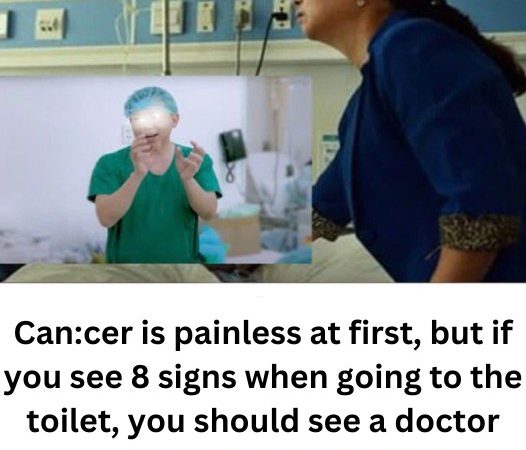You’re right that cancer, especially in its early stages, can often be painless and go unnoticed. However, certain changes in bodily functions, particularly during trips to the bathroom, can be early warning signs of various types of cancer. Here are 8 signs that might appear when going to the toilet, which should prompt you to see a doctor:
Blood in Urine or Stool: Blood in the urine (hematuria) or stool (rectal bleeding) can be a sign of cancers such as bladder cancer, kidney cancer, colorectal cancer, or anal cancer. Even a small amount of blood should be checked out.
Persistent Painful Urination: Difficulty or pain when urinating could be a sign of bladder, prostate, or kidney cancer. It’s important to rule out infections or other issues that could be causing discomfort.
Frequent or Urgent Need to Urinate: Increased urgency or frequency to urinate, especially at night, could be linked to prostate cancer or bladder cancer. It might also be a sign of a urinary tract infection (UTI), but if persistent, it’s worth getting checked.
Change in Bowel Habits: Unexplained changes in bowel habits—such as persistent diarrhea or constipation—may indicate colorectal cancer. If these changes last more than a few weeks, it’s important to consult a doctor.
Pain or Discomfort When Passing Stool: If you experience pain, discomfort, or a feeling of incomplete bowel movements, it might be a sign of colorectal cancer or other gastrointestinal issues.
Unexplained Weight Loss: Unintentional weight loss along with changes in bowel or urination habits could be a sign of cancer affecting the digestive or urinary system.
Persistent Fatigue: Feeling unusually tired even after a full night’s rest, combined with changes in bathroom habits, could point to cancers affecting the organs involved in digestion or elimination, such as colorectal or kidney cancer.
Nausea or Vomiting: Unexplained nausea or vomiting, especially when paired with changes in bowel movements or urination, could be indicative of issues like kidney cancer, pancreatic cancer, or other gastrointestinal cancers.
It’s important to remember that these symptoms don’t necessarily mean you have cancer—many of them can also be caused by less serious conditions like infections or digestive disorders. However, if you notice any of these signs and they persist, it’s crucial to see a healthcare professional for an evaluation. Early detection can significantly improve outcomes if it is cancer.
Let me know if you want to talk more about any of these signs or need further information!

